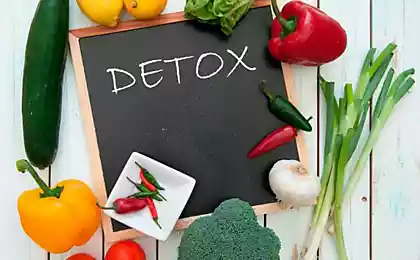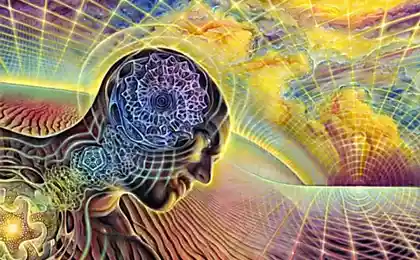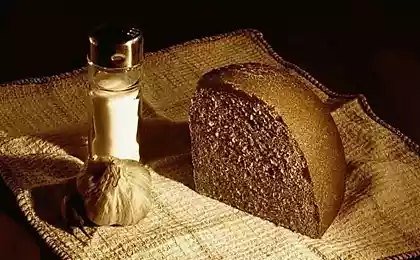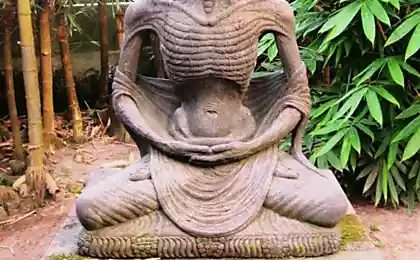647
Ekadasi - fashionable, one-day dry fasting to cleanse the body and soul
The man needs a rest. From time to time we take a vacation, leave in a warm country, turn off the phone and Internet. Mind and body need peace and harmony. Not only is resting the stomach: on vacation as at home, we continue to overeat. Meanwhile, our digestive system also requires a pause. In the Vedic culture the days of abstinence from food and water are called Ekadasi.
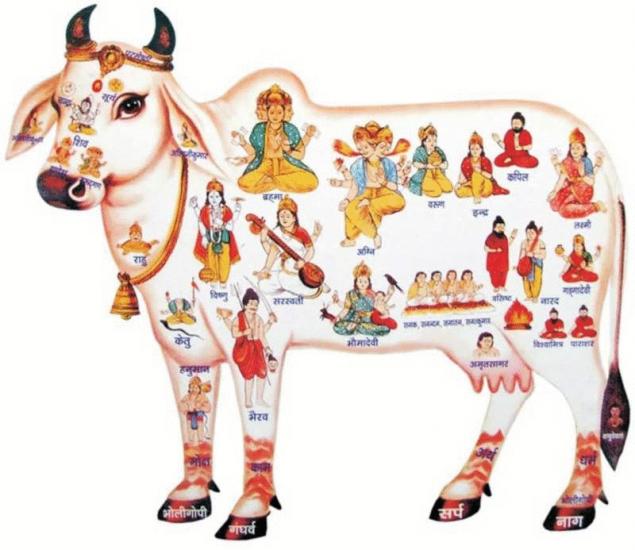
Ekadasi (Sanskrit — "eleven") is the 11th lunar day after each full moon and new moon. Usually, this 11-th and 26-th lunar day. In Hinduism and Jainism, these days are considered especially auspicious for various spiritual practices, meditation, and cleansing the body through fasting. It is about the physiological aspect of Ekadasi we will discuss in this article.
What is Ekadasi?
From the standpoint of the Vedic teachings, every 11th day of the rising and descending of the moon favors cleansing of the body and stimulate self-healing. It is believed that in these days the Moon is closest to Earth, and has on its waters the greatest gravitational influence. And since man is 80% water, the Moon affects not only sea tides, but also on the physiological state of the organism. Cells these days are already experiencing a "overload" and heavy food may be detrimental to health. While abstinence from eating and drinking, in contrast, allows the body to relax and gain strength.
Followers of Hinduism believe that such fasting days activate internal resources of the body, cleanse it of toxins, improve health, rejuvenate and even prolong life.
From the point of view of modern medicine, Ekadasi is a preventive one-day dry fasting. Within 24 hours (from sunrise to sunrise) you must refrain from taking food and water. While the fasting-diet therapy has its supporters and opponents.
The benefits and dangers of dry fasting
Supporters of Ekadasi and other fasting claim that the famine was treated by Hippocrates; fasting is in all religions; and to temperance is hidden a great wisdom of the ancestors.
It is believed that Ekadasi can alleviate the symptoms of diseases such as asthma, allergies, hypertension, diseases of the stomach and intestines, diabetes, and others.
The main argument in this case is not receiving recharge from the outside, the body switches to internal power by breaking down its own fats, carbohydrates and proteins. At the same time cleaning the body of toxins. So the cells are revitalized, you feel inflow of vivacity.
It is important to emphasize that fasting is a method of alternative medicine. The doctors, representing the classical school, generally do not support such drastic measures. So, the doctor of medical Sciences, clinical Professor of medicine, cardiologist Isador Rosenfeld (Rosenfeld Isadore) opposes diets involving the consumption of less than 1 200 kcal per day.
He argues that the idea of the existence in humans of so-called toxins unscientific. No studies reliably showing that the body needs help to produce the end products of metabolism. Moreover, Dr. Rosenfeld believes that fasting can weaken the immune system, disrupt heart rhythms and lead to dehydration.
Ekadasi provides for the refusal of food and water for 24 hours. It is possible as a strict fast (no contact with water and food) and more lenient (partial starvation, when once a day is allowed drinking and eating). In the teachings it is said that one who fasts completely, receives "award" completely, and the one who eats nactu (dinner) — only half. However, it is important to remember that water loss that causes a reduction in body mass by 10-20%, life-threatening. Doctors urged to refrain from dry fasting in hot weather and during strenuous exercises.
The followers of Ekadasi recognize that the first few posts can cause side effects:
dizziness
nausea
headache
abnormal heart rhythm
low blood pressure and other
But it is believed that this is a natural reaction of the body that is being rebuilt to combat toxins. If you have been practicing Ekadasi regularly, these symptoms will pass.
Doctors also claim that dry fasting can lead to complications of kidney stones and gout, and in the long term to problems with the liver and kidneys. In addition, there are diseases in which doctors strictly forbid to starve, especially without water. Among them:
tuberculosis
diseases of the heart and circulation
thrombophlebitis
the deficit of body weight
malignant tumors
Do not post Ekadasi is also recommended for pregnant women, nursing mothers and people taking potent drugs.
The post Ekadasi: how to enter, follow and exit
As mentioned above, the best way to observe Ekadasi — completely abstain from food and drink. But for those who can't stick to such strict rules, you are allowed to drink water and eat certain foods. As long as it did not include legumes and cereal crops (peas, chickpeas, beans, beans, rice, pasta, etc.).
Other products are prohibited on Ekadasi:
spinach
honey
eggplant
beets
tomatoes
onions and garlic
cabbage
mushrooms
spices, sea salt and sugar
oil
In addition, it is not recommended to eat in other people's homes, cafes and restaurants. But the most difficult is not the post, and the correct input on Ekadasi and out of it. You need to prepare the body for starvation, on the eve of abandoning junk food and in General reducing diet.
The output of Ekadasi should start with a drink (if you kept a strict fast). To do this, after the rising of the sun you need to drink 0.5 liters of salted water (one teaspoon of salt per half liter). If you want you can add in water and salt solution lemon juice. In a few minutes after taking the water, you can eat a banana. It is believed that this fruit coats the stomach, neutralizing the accumulated acid in it. Even after some time, you can afford a light Breakfast. During the day after Ekadasi, do not eat greasy, fried food.
"If a person fasts on Ekadasi, I will burn all his sins and grant him My transcendental abode. Ekadasi is a good day for the destruction of all sins. It comes all things for good. Krishna To Arjuna "
Remember: Ekadasi, like any religious fasting is primarily a spiritual abstinence. These days, you should devote herself to austerities, to help the needy and to do good. Because in Hinduism, Ekadashi is the cleansing of the body not so much, how many a soul.
If you practice (ever practiced) Ekadasi or other types of fasting, share your experiences in the comments.
Source: koko.by
Source: /users/1077

Ekadasi (Sanskrit — "eleven") is the 11th lunar day after each full moon and new moon. Usually, this 11-th and 26-th lunar day. In Hinduism and Jainism, these days are considered especially auspicious for various spiritual practices, meditation, and cleansing the body through fasting. It is about the physiological aspect of Ekadasi we will discuss in this article.
What is Ekadasi?
From the standpoint of the Vedic teachings, every 11th day of the rising and descending of the moon favors cleansing of the body and stimulate self-healing. It is believed that in these days the Moon is closest to Earth, and has on its waters the greatest gravitational influence. And since man is 80% water, the Moon affects not only sea tides, but also on the physiological state of the organism. Cells these days are already experiencing a "overload" and heavy food may be detrimental to health. While abstinence from eating and drinking, in contrast, allows the body to relax and gain strength.
Followers of Hinduism believe that such fasting days activate internal resources of the body, cleanse it of toxins, improve health, rejuvenate and even prolong life.
From the point of view of modern medicine, Ekadasi is a preventive one-day dry fasting. Within 24 hours (from sunrise to sunrise) you must refrain from taking food and water. While the fasting-diet therapy has its supporters and opponents.
The benefits and dangers of dry fasting
Supporters of Ekadasi and other fasting claim that the famine was treated by Hippocrates; fasting is in all religions; and to temperance is hidden a great wisdom of the ancestors.
It is believed that Ekadasi can alleviate the symptoms of diseases such as asthma, allergies, hypertension, diseases of the stomach and intestines, diabetes, and others.
The main argument in this case is not receiving recharge from the outside, the body switches to internal power by breaking down its own fats, carbohydrates and proteins. At the same time cleaning the body of toxins. So the cells are revitalized, you feel inflow of vivacity.
It is important to emphasize that fasting is a method of alternative medicine. The doctors, representing the classical school, generally do not support such drastic measures. So, the doctor of medical Sciences, clinical Professor of medicine, cardiologist Isador Rosenfeld (Rosenfeld Isadore) opposes diets involving the consumption of less than 1 200 kcal per day.
He argues that the idea of the existence in humans of so-called toxins unscientific. No studies reliably showing that the body needs help to produce the end products of metabolism. Moreover, Dr. Rosenfeld believes that fasting can weaken the immune system, disrupt heart rhythms and lead to dehydration.
Ekadasi provides for the refusal of food and water for 24 hours. It is possible as a strict fast (no contact with water and food) and more lenient (partial starvation, when once a day is allowed drinking and eating). In the teachings it is said that one who fasts completely, receives "award" completely, and the one who eats nactu (dinner) — only half. However, it is important to remember that water loss that causes a reduction in body mass by 10-20%, life-threatening. Doctors urged to refrain from dry fasting in hot weather and during strenuous exercises.
The followers of Ekadasi recognize that the first few posts can cause side effects:
dizziness
nausea
headache
abnormal heart rhythm
low blood pressure and other
But it is believed that this is a natural reaction of the body that is being rebuilt to combat toxins. If you have been practicing Ekadasi regularly, these symptoms will pass.
Doctors also claim that dry fasting can lead to complications of kidney stones and gout, and in the long term to problems with the liver and kidneys. In addition, there are diseases in which doctors strictly forbid to starve, especially without water. Among them:
tuberculosis
diseases of the heart and circulation
thrombophlebitis
the deficit of body weight
malignant tumors
Do not post Ekadasi is also recommended for pregnant women, nursing mothers and people taking potent drugs.
The post Ekadasi: how to enter, follow and exit
As mentioned above, the best way to observe Ekadasi — completely abstain from food and drink. But for those who can't stick to such strict rules, you are allowed to drink water and eat certain foods. As long as it did not include legumes and cereal crops (peas, chickpeas, beans, beans, rice, pasta, etc.).
Other products are prohibited on Ekadasi:
spinach
honey
eggplant
beets
tomatoes
onions and garlic
cabbage
mushrooms
spices, sea salt and sugar
oil
In addition, it is not recommended to eat in other people's homes, cafes and restaurants. But the most difficult is not the post, and the correct input on Ekadasi and out of it. You need to prepare the body for starvation, on the eve of abandoning junk food and in General reducing diet.
The output of Ekadasi should start with a drink (if you kept a strict fast). To do this, after the rising of the sun you need to drink 0.5 liters of salted water (one teaspoon of salt per half liter). If you want you can add in water and salt solution lemon juice. In a few minutes after taking the water, you can eat a banana. It is believed that this fruit coats the stomach, neutralizing the accumulated acid in it. Even after some time, you can afford a light Breakfast. During the day after Ekadasi, do not eat greasy, fried food.
"If a person fasts on Ekadasi, I will burn all his sins and grant him My transcendental abode. Ekadasi is a good day for the destruction of all sins. It comes all things for good. Krishna To Arjuna "
Remember: Ekadasi, like any religious fasting is primarily a spiritual abstinence. These days, you should devote herself to austerities, to help the needy and to do good. Because in Hinduism, Ekadashi is the cleansing of the body not so much, how many a soul.
If you practice (ever practiced) Ekadasi or other types of fasting, share your experiences in the comments.
Source: koko.by
Source: /users/1077





